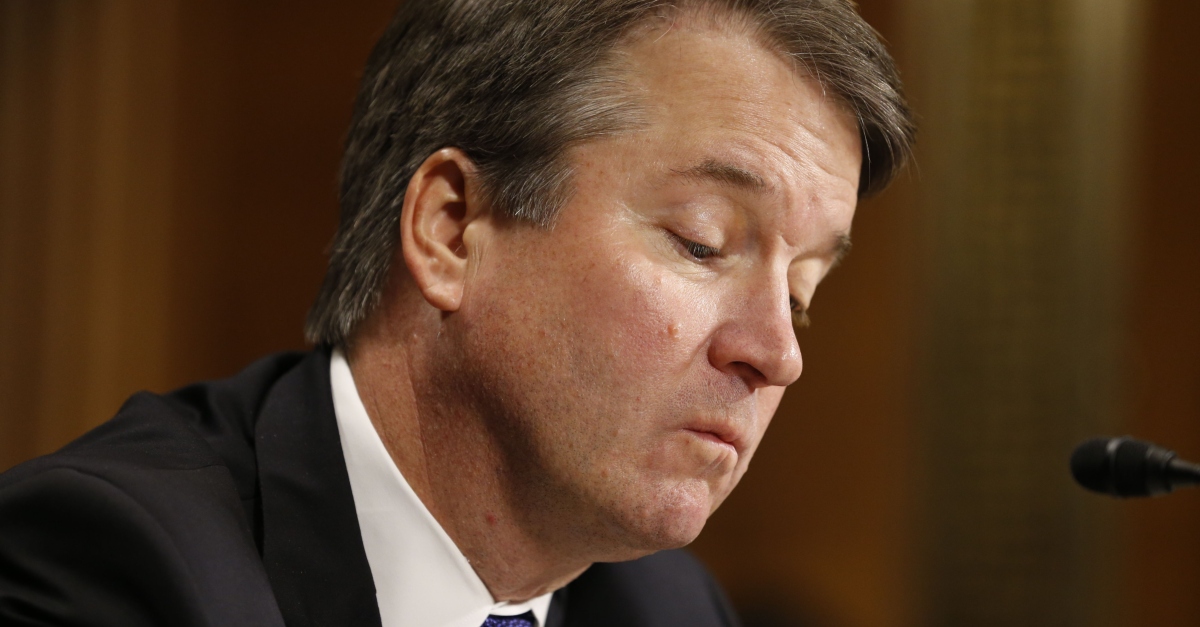
The New York State Supreme Court’s Appellate Division ruled on Thursday that a sitting president can face civil litigation in state court for unofficial acts that took place prior to their presidency. The decision regarded former Apprentice contestant Summer Zervos‘ defamation case against President Donald Trump. In a lengthy opinion, Judge Diane Renwick explained why Trump’s legal arguments failed, and cited an ironic source for good measure.
The main crux of Renwick’s opinion centered on what she said was a poor reading of the Constitution’s Supremacy Clause by Trump’s legal team. Attorney Marc Kasowitz argued before a lower court that the Supremacy Clause meant that a state court cannot have jurisdiction over a sitting president. A U.S. Supreme Court decision in the similar federal case Clinton v. Jones acknowledged that a hypothetical state court case would involve separate issues, and thus the Jones case didn’t control such a situation.
Despite this, Judge Renwick said that the Supremacy Clause is only meant to settle conflicts between state and federal laws, and there’s no reason to believe that it says anything about a state court’s ability to hear cases involving the president.
The judge then added that the Supreme Court said in reference to the Jones case,”The Supreme Court also considered that ‘[i]f Congress deems it appropriate to afford the President stronger protection, it may respond with appropriate legislation.'”
Judge Renwick then piled on. In addition to citing the above quote, she quoted a 2009 law review article by now-Supreme Court Justice Brett Kavanaugh. The newest member of the high court wrote in Separation of Powers During the Forty-Fourth Presidency and Beyond, “It would be appropriate for Congress to enact a statute providing that any personal civil suits against presidents . . . be deferred while the President is in office. The result the Supreme Court reached in Jones . . . . may well have been entirely correct.”
This was Judge Renwick’s full citation of Kavanaugh:
The Supreme Court also considered that “[i]f Congress deems it appropriate to afford the President stronger protection, it may respond with appropriate legislation” (id. at 709; cf. Brett M. Kavanaugh, Separation of Powers During the Forty-Fourth Presidency and Beyond, 93 Minn L Rev 1454, 1460-1461 [2009] [“(I)t would be appropriate for Congress to enact a statute providing that any personal civil suits against presidents . . . be deferred while the President is in office. The result the Supreme Court reached in (Clinton v) Jones . . . . may well have been entirely correct . . . But the Court in (Clinton v) Jones stated that Congress is free to provide a temporary deferral of civil suits while the President is in office”]).
Given the rest of Renwick’s opinion and the aforementioned Supreme Court citation, mentioning Kavanaugh probably wasn’t necessary, but using Trump’s own appointee against him did add a degree of irony.
[Image via MICHAEL REYNOLDS/AFP/Getty Images]